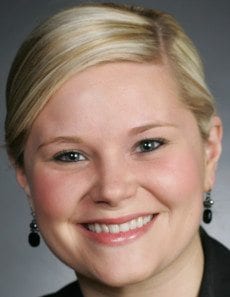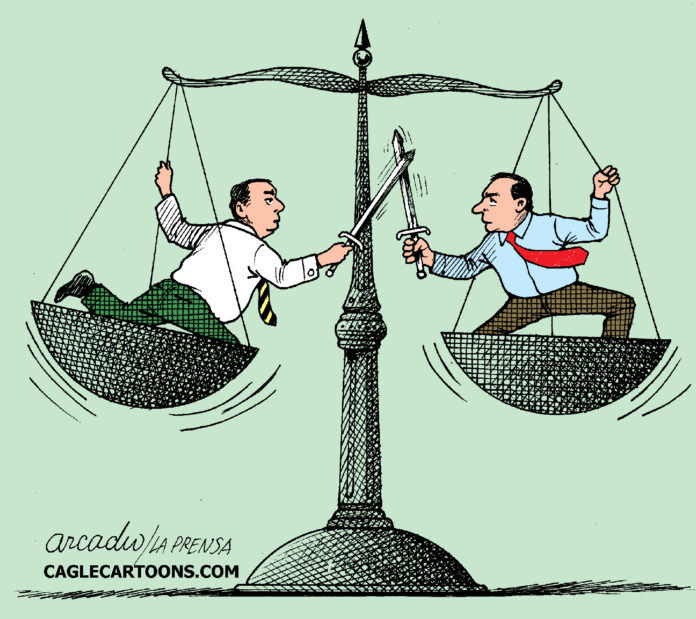BY EMILY VIRGIN
 George Santayana, a Spanish philosopher, wrote that, “Those who cannot remember the past, are condemned to repeat it.”
George Santayana, a Spanish philosopher, wrote that, “Those who cannot remember the past, are condemned to repeat it.”
Apparently state Rep. Kevin Calvey has not read his Oklahoma history, or, if he has, he forgot an important part of it.
In a column published Wednesday in the Oklahoman, Rep. Calvey, R-Oklahoma City, contended that Oklahoma should return to electing its appellate-level judges, and claimed that the Oklahoma Bar Association and its members dictate who sits on the state Supreme Court.
This could not be further from the truth.
The Judicial Nominating Commission is comprised of 15 members: nine non-attorneys and six attorneys. Simple math shows that the non-attorneys can out-vote the attorney members of the commission any time they choose to do so.
In a 2013 interim legislative study requested by former Republican Speaker of the House T.W. Shannon, non-attorney members of the commission testified that in no way were they overtaken by the will of the Oklahoma Bar Association and its members. They strongly resented the implication that they allowed the attorney members of the commission to control the decisions they made.
The non-attorney members did, however, note that they highly valued the insight of the attorney members of the commission. Those members offered a unique perspective on the applicants because they could provide insight on their colleagues that many outside the profession had not seen, especially when it comes to potential judicial temperament.
Until 1969, all judges in Oklahoma had to stand for elected office – a factor which contributed to a bribery scandal that tainted the Oklahoma Supreme Court in 1965. Three Supreme Court justices were convicted or resigned because of the scandal. Election of Supreme Court justices, involving campaigns and political contributions, played a significant role in the court’s bribery scandal.
As a direct consequence of this scandal, Oklahoma voters opted to change the method by which appellate judges are selected. State Question 447 was approved on July 11, 1967, which led to the creation of a bipartisan Judicial Nominating Commission.
While district judges are still elected by the voters, the Judicial Nominating Commission screens applicants for the appellate courts and recommends the three best nominees to the governor, who picks from among those nominees one person to fill an open position in the state’s higher courts.
By suggesting a return to popular elections, politicians like Calvey are ignoring the will of the people who saw the danger of corruption inherent in electing Supreme Court justices. Keeping partisan politics off the bench has served Oklahomans well for nearly 50 years. We owe it to Oklahomans not to return to the day of judicial scandal and justice for sale.
– Attorney Emily Virgin, a Norman Democrat, represents District 44 in the Oklahoma House of Representatives
Editor’s Note: For more information, see Justice For Sale? Corporatists, Religious Zealots Still Plotting Takeover Of State Judiciary, the cover story in the May 2015 Oklahoma Observer. Also excellent reading: former Justice William A. Berry’s Justice For Sale: The Shocking Scandal Of The Oklahoma Supreme Court, published in 1997.







